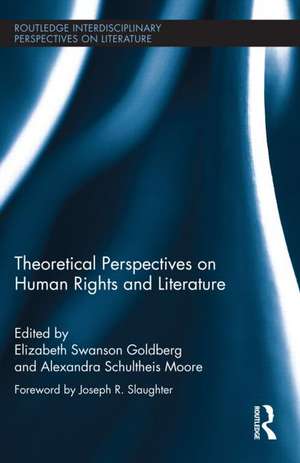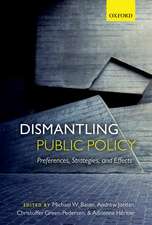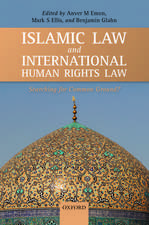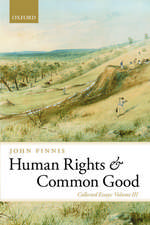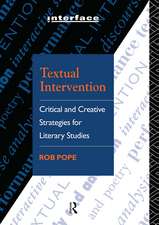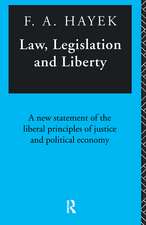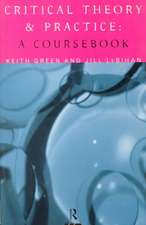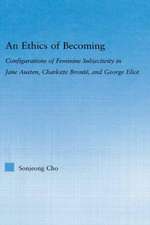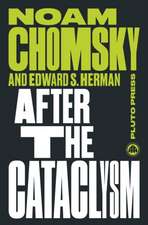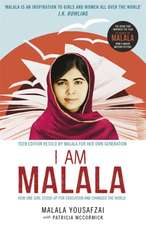Theoretical Perspectives on Human Rights and Literature: Routledge Interdisciplinary Perspectives on Literature
Editat de Elizabeth Swanson Goldberg, Alexandra Schultheis Mooreen Limba Engleză Hardback – 26 sep 2011
| Toate formatele și edițiile | Preț | Express |
|---|---|---|
| Paperback (1) | 488.29 lei 43-57 zile | |
| Taylor & Francis – 21 mar 2013 | 488.29 lei 43-57 zile | |
| Hardback (1) | 1056.35 lei 43-57 zile | |
| Taylor & Francis – 26 sep 2011 | 1056.35 lei 43-57 zile |
Din seria Routledge Interdisciplinary Perspectives on Literature
-
 Preț: 277.97 lei
Preț: 277.97 lei -
 Preț: 311.26 lei
Preț: 311.26 lei -
 Preț: 377.87 lei
Preț: 377.87 lei -
 Preț: 339.95 lei
Preț: 339.95 lei -
 Preț: 311.56 lei
Preț: 311.56 lei -
 Preț: 309.27 lei
Preț: 309.27 lei -
 Preț: 310.29 lei
Preț: 310.29 lei -
 Preț: 310.60 lei
Preț: 310.60 lei - 9%
 Preț: 1007.24 lei
Preț: 1007.24 lei -
 Preț: 371.71 lei
Preț: 371.71 lei - 26%
 Preț: 819.48 lei
Preț: 819.48 lei -
 Preț: 442.71 lei
Preț: 442.71 lei - 18%
 Preț: 1110.74 lei
Preț: 1110.74 lei - 26%
 Preț: 877.19 lei
Preț: 877.19 lei - 18%
 Preț: 1117.43 lei
Preț: 1117.43 lei -
 Preț: 486.38 lei
Preț: 486.38 lei - 18%
 Preț: 700.62 lei
Preț: 700.62 lei - 18%
 Preț: 1063.31 lei
Preț: 1063.31 lei - 18%
 Preț: 707.86 lei
Preț: 707.86 lei - 18%
 Preț: 1117.07 lei
Preț: 1117.07 lei -
 Preț: 488.29 lei
Preț: 488.29 lei - 18%
 Preț: 1057.05 lei
Preț: 1057.05 lei -
 Preț: 383.63 lei
Preț: 383.63 lei - 18%
 Preț: 1109.99 lei
Preț: 1109.99 lei - 18%
 Preț: 1113.16 lei
Preț: 1113.16 lei - 5%
 Preț: 1223.90 lei
Preț: 1223.90 lei - 18%
 Preț: 1036.35 lei
Preț: 1036.35 lei - 18%
 Preț: 1057.89 lei
Preț: 1057.89 lei -
 Preț: 448.49 lei
Preț: 448.49 lei - 18%
 Preț: 1109.99 lei
Preț: 1109.99 lei - 18%
 Preț: 1052.35 lei
Preț: 1052.35 lei - 18%
 Preț: 1118.82 lei
Preț: 1118.82 lei - 18%
 Preț: 1057.09 lei
Preț: 1057.09 lei - 28%
 Preț: 822.01 lei
Preț: 822.01 lei - 18%
 Preț: 1053.16 lei
Preț: 1053.16 lei - 18%
 Preț: 1112.90 lei
Preț: 1112.90 lei - 18%
 Preț: 1109.99 lei
Preț: 1109.99 lei - 18%
 Preț: 1054.27 lei
Preț: 1054.27 lei - 18%
 Preț: 1112.34 lei
Preț: 1112.34 lei - 5%
 Preț: 1222.85 lei
Preț: 1222.85 lei - 18%
 Preț: 1110.74 lei
Preț: 1110.74 lei - 18%
 Preț: 1111.58 lei
Preț: 1111.58 lei - 18%
 Preț: 1112.21 lei
Preț: 1112.21 lei - 18%
 Preț: 1058.38 lei
Preț: 1058.38 lei - 18%
 Preț: 1059.84 lei
Preț: 1059.84 lei
Preț: 1056.35 lei
Preț vechi: 1288.23 lei
-18% Nou
Puncte Express: 1585
Preț estimativ în valută:
202.20€ • 219.70$ • 169.95£
202.20€ • 219.70$ • 169.95£
Carte tipărită la comandă
Livrare economică 21 aprilie-05 mai
Preluare comenzi: 021 569.72.76
Specificații
ISBN-13: 9780415890977
ISBN-10: 0415890977
Pagini: 334
Dimensiuni: 152 x 229 x 19 mm
Greutate: 0.5 kg
Ediția:1
Editura: Taylor & Francis
Colecția Routledge
Seria Routledge Interdisciplinary Perspectives on Literature
Locul publicării:Oxford, United Kingdom
ISBN-10: 0415890977
Pagini: 334
Dimensiuni: 152 x 229 x 19 mm
Greutate: 0.5 kg
Ediția:1
Editura: Taylor & Francis
Colecția Routledge
Seria Routledge Interdisciplinary Perspectives on Literature
Locul publicării:Oxford, United Kingdom
Public țintă
Postgraduate and UndergraduateCuprins
Contents Foreword, Joseph R. Slaughter Acknowledgments Introduction Human Rights and Literature: The Development of an Interdiscipline, Elizabeth Swanson Goldberg and Alexandra Schultheis Moore I. Histories, Imaginaries, and Paradoxes of Literature and Human Rights 1: "Literature," the "Rights of Man," and Narratives of Atrocity: Historical Backgrounds to the Culture of Testimony, Julie Stone Peters 2: Enabling Fictions and Novel Subjects: The Bildungsroman and International Human Rights Law, Joseph R. Slaughter 3: Top Down, Bottom Up, Horizontally: Resignifying the Universal in Human Rights Discourse, Domna C. Stanton 4: Literature, the Social Imaginary and Human Rights, Meili Steele 5: Intimations of What Was to Come: Edwidge Danticat’s The Farming of Bones and the Indivisibility of Human Rights, Elizabeth Swanson Goldberg 6: Paradoxes of Neoliberalism and Human Rights, Greg Mullins II. Questions of Narration, Representation, and Evidence 7: Reading the Living Archives: The Witness of Literary Art, Carolyn Forché 8: Narrating Human Rights and the Limits of Magical Realism in Salman Rushdie’s Shalimar the Clown, Elizabeth S. Anker 9: Complicities of Transnational Witnessing in Joe Sacco’s Palestine, Wendy Kozol 10: Dark Chamber, Colonial Scene: Post-9/11 Torture and Representation, Stephanie Athey III. Rethinking the 'Subject’ of Human Rights 11: Human Rights as Violence and Enigma: Can Literature Really Be of Any Help with the Politics of Human Rights?, Nick Mansfield 12: Imagining Women as Human, Hephzibah Roskelly 13: "Disaster Capitalism" and Human Rights: Indra Embodiment and Subalternity in Indra Sinha’s Animal’s People, Alexandra Schultheis Moore 14: Do Human Rights Need a Self? Buddhist Literature and the Samsaric Subject, Gregory Price Grieve IV. Epilogue Elizabeth Swanson Goldberg and Alexandra Schultheis Moore
Recenzii
"The range of voices represented in the book is remarkable…Theoretical Perspectives on Human Rights and Literature promises to be an important contribution not only because it effectively described the burgeoning subfield of literature and human rights, but also because its theoretical interventions help to consolidate and advance that subfield." – James Dawes, Macalester College, Comparative Literature
"A book that reads more like a collective intellectual project than a collection of essays, this volume testifies to the genuine power of a literary turn in thinking about human rights. By turns critical, engaged, historical, and richly theoretical, it is throughout intensely involved with language and with reading, and demonstrates the difference that a careful attention to texts can make -- not only for our understanding, which is more than enough, but also for the pursuit of justice itself." – Thomas Keenan, Associate Professor of Comparative Literature & Director, Human Rights Project, Bard College
"These important essays lay out a political direction and an intellectual project for contemporary literary studies." – Homi K. Bhabha, Anne F. Rothenberg Professor of the Humanities, Harvard University
"This collection marks a timely and valuable contribution to the study of the intersections of human rights law, literature, and culture. In etching out a human rights oriented literary and cultural criticism, contributors reveal the prominence of literary forms in normative reasoning and rights treaties, and provide a rich and productive analysis of the human rights paradox of universality and its complicity with global power, and the ethical challenges posed by representations that converge on atrocity and violence as narrative destinations." – Wendy S. Hesford, Author of "Spectacular Rhetorics: Human Rights Visions, Recognitions, Feminisms"
Those of us committed to the interdisciplinary dimensions of human rights studies will welcome these rich and varied studies on potential and actual literary contributions brought together by Elizabeth Goldberg and Alexandra Moore…Nothing short of reading the book could do justice to the emotional and intellectual territory covered, not to mention the variety of literary genres, legal, literary, ethical and esthetical premises." --J. Paul Martin, Barnard College, Columbia University, Human Rights Quarterly
"This volume offers readers an excellent entry into the complexity of the inter-discipline of human rights and literature. It gives an introduction to the range of critical perspectives and issues that have shaped the field while also offering some of the best new work on these topics." -- College Literature
"A book that reads more like a collective intellectual project than a collection of essays, this volume testifies to the genuine power of a literary turn in thinking about human rights. By turns critical, engaged, historical, and richly theoretical, it is throughout intensely involved with language and with reading, and demonstrates the difference that a careful attention to texts can make -- not only for our understanding, which is more than enough, but also for the pursuit of justice itself." – Thomas Keenan, Associate Professor of Comparative Literature & Director, Human Rights Project, Bard College
"These important essays lay out a political direction and an intellectual project for contemporary literary studies." – Homi K. Bhabha, Anne F. Rothenberg Professor of the Humanities, Harvard University
"This collection marks a timely and valuable contribution to the study of the intersections of human rights law, literature, and culture. In etching out a human rights oriented literary and cultural criticism, contributors reveal the prominence of literary forms in normative reasoning and rights treaties, and provide a rich and productive analysis of the human rights paradox of universality and its complicity with global power, and the ethical challenges posed by representations that converge on atrocity and violence as narrative destinations." – Wendy S. Hesford, Author of "Spectacular Rhetorics: Human Rights Visions, Recognitions, Feminisms"
Those of us committed to the interdisciplinary dimensions of human rights studies will welcome these rich and varied studies on potential and actual literary contributions brought together by Elizabeth Goldberg and Alexandra Moore…Nothing short of reading the book could do justice to the emotional and intellectual territory covered, not to mention the variety of literary genres, legal, literary, ethical and esthetical premises." --J. Paul Martin, Barnard College, Columbia University, Human Rights Quarterly
"This volume offers readers an excellent entry into the complexity of the inter-discipline of human rights and literature. It gives an introduction to the range of critical perspectives and issues that have shaped the field while also offering some of the best new work on these topics." -- College Literature
Descriere
What can literary theory reveal about discourses and practices of human rights, and how can human rights frameworks help to make sense of literature? How have human rights concerns shaped the literary marketplace, and how can literature impact human rights concerns? Essays in this volume theorize how both literature and reading literarily can shape understanding of human rights in productive ways. Contributors to Theoretical Perspectives on Human Rights and Literature provide a shared history of modern literature and rights; theorize how trauma, ethics, subjectivity, and witnessing shape representations of human rights violations and claims in literary texts across a range of genres (including poetry, the novel, graphic narrative, short story, testimonial, and religious fables); and consider a range of civil, political, social, economic, and cultural rights and their representations. The authors reflect on the imperial and colonial histories of human rights as well as the cynical mobilization of human rights discourses in the name of war, violence, and repression; at the same time, they take seriously Gayatri Spivak’s exhortation that human rights is something that we "cannot not want," exploring the central function of storytelling at the heart of all human rights claims, discourses, and policies.
